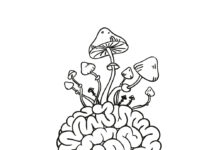A study recently published in PLOS One emphasizes the prolonged negative impacts of benzodiazepine use. According to participants, symptoms such as fatigue, anxiety, and memory loss often persisted for at least a year. Some respondents reported grappling with these after-effects long after stopping the drug. Furthermore, numerous participants revealed that they experienced adverse life events due to their use of benzodiazepines.
The study, led by Alexis D. Ritvo from the University of Colorado School of Medicine, noted:
“More than half of the respondents who experienced low energy, distractedness, memory loss, nervousness, anxiety, and other symptoms stated that these symptoms lasted a year or longer. These symptoms were often reported as de novo and distinct from the symptoms for which the benzodiazepines were originally prescribed. A subset of respondents stated that symptoms persisted even after benzodiazepines had been discontinued for a year or more. Adverse life consequences were reported by many respondents as well.”
 The current work aimed to investigate symptoms and adverse life events associated with benzodiazepine use. To achieve this goal, the authors used data from previous research in which 1,207 benzodiazepine users completed an anonymous survey about symptoms and adverse life consequences they attributed to their use of benzodiazepines.
The current work aimed to investigate symptoms and adverse life events associated with benzodiazepine use. To achieve this goal, the authors used data from previous research in which 1,207 benzodiazepine users completed an anonymous survey about symptoms and adverse life consequences they attributed to their use of benzodiazepines.
The participants were recruited from benzodiazepine support groups and health/wellness websites. The sample was made up of people that were currently taking benzodiazepines (11.3%), in the middle of discontinuing their use (about 24.4%), and those that had entirely stopped their use (about 63.2%).
The most commonly reported adverse effects of the drug were anxiety, nervousness, or fear (88.1% of respondents), sleep disturbances (86.9%), low energy (86.2%), and difficulty focusing/distractedness (85.3%). Participants that were still using the drugs had the fewest adverse effects. Those tapering or completely discontinuing their benzodiazepine use experienced a similar number of adverse effects.
Of the symptoms reported in the survey, 76.6% persisted for several months or longer. More than half of the participants reported the following symptoms as lasting a year or more:
- Low energy (59.9%)
- Difficulty focusing (58.3%)
- Memory loss (57.5%)
- Anxiety/nervousness (57%)
- Sleep disturbances (56.4%)
- Sensitivity to stimuli (54.3%)
- Digestive issues (52.2%)
- Reactions to specific foods or drinks (52%)
- Muscle weakness (51.2%)
- Body pain (50.7%)
90% of respondents attributed one or more general adverse life consequences to benzodiazepine use.” Most respondents (79.3%) attributed multiple (between 6 to 13) negative life consequences to their use of benzodiazepines. Participants reported an average of 8.1 of the 16 possible adverse life consequences in the survey.
56.8% of respondents indicated that benzo use had significantly affected their marriage or other relationships. 54.4% reported suicidal thoughts or suicide attempts. 46.8% were fired from their jobs or could not work, and 32.6% received lower wages in a reduced job capacity. 40.9% saw significant increases in their medical costs. 23.5% experienced violent thoughts or committed violence against others. 26.7% lost savings or retirement funds. 12.6% Lost their home, and 8.4% lost their business. 2.6% Lost custody of their children.
Many participants who discontinued benzodiazepine use for a year or more reported severe or worse problems in several areas of their lives. Of the 426 participants that had not taken the drugs for at least one year, 356 (83.6%) said they had severe or worse problems with fun, recreation, and hobbies. 79.3% reported significant difficulties in their work life. 76.8% had severe issues in their social lives. 72.5% endorsed a significantly reduced capacity to care for their homes and loved ones. 68.8% reported severe problems in their relationships with spouses and family. 55.9% had problems driving or walking.
The authors acknowledge several limitations to the current work. Participants were self-selected and may have been more willing to participate in the survey if they experienced significant problems from benzodiazepine use. There was no control group, meaning there was no way to compare benzodiazepine users to non-users in this sample. The survey was anonymous, meaning researchers could not access participants’ psychiatric records or verify diagnoses. The authors conclude:
“Many prolonged symptoms subsequent to benzodiazepine use and discontinuation (benzodiazepine-induced neurological dysfunction) have been shown in a large survey of benzodiazepine users. Benzodiazepine-induced neurological dysfunction (BIND) has been proposed as a term to describe symptoms and associated adverse life consequences that may emerge during benzodiazepine use, tapering, and continue after benzodiazepine discontinuation. Not all people who take benzodiazepines will develop BIND, and risk factors for BIND remain to be elucidated. “
Benzodiazepines have been linked to suicide and brain changes even after they are discontinued. Research has also linked these drugs to dementia and memory loss. The Food and Drug Administration (FDA) in the United States has admitted that benzodiazepines cause physical dependence that can present after just a few days. The cognitive impairment that results from long-term benzodiazepine use can persist even after discontinuation.
****
Ritvo AD, Foster DE, Huff C, Finlayson AJR, Silvernail B, Martin PR (2023) Long-term consequences of benzodiazepine-induced neurological dysfunction: A survey. PLoS ONE 18(6): e0285584. https://doi.org/10.1371/journal. pone.0285584 (Link)















Self selection in this case, to my view, does not need to be a negative for the study. I am an early retired physician, and in my limited, as generalist, experience around 1 to 3% of my then patients, had suffered an adverse outcome and did not consult ANOTHER physician when they experienced adverse outcomes. Particularly when the then treatng physician is less than humane. They even, apparently, experienced some form of “violence” when getting a second opinion. Around half of those did gave me the impression that there was at least negligence in their case. The other half, experience, in my view, bad outcomes of the disease, despite treatment, and a lack of proper explanation. The National Comission that deals with malpractice in my country was very emphatic that most negligence cases involve two things: lack of concern for the patient’s wellbeing, to me almost spite, and lack of a timely proper explanation. And obviously informed consent, that was implied in the seminar of the Comission.
For some reason once I started to talk to patients about that kind of concern more followed, apparently, that, around 25yrs ago was unusual among physicians: making lighter the burden of harm, suspicion and ignorance in the face of a bad outcome, which to my mind is enterily human and easily addreasseable with a caring explanation, after a proper questioning and if needed a physicial, that last one very rare, just the narrative was most time’s enough. So, many patients rather struggle alone, than to seek help, I suspect even from an ostensibly support group of humans more like oneself.
On another hand, I did, around 3 decades ago spent time in the office of a psychiatrist, outside the official school curriculum, when we saw a mother yank his ADD/ADHD labeled kid in the office, when the kid, the patient, said something along the lines of: “Stop yanking me! you are hurting me!”. After they left the office I asked the psychiatrist if he had filled the questionaire of the kids teachers, the DSM-3R was current. He said no. I asked him if he was going to report to the equivalent of child protective services (I am not a US retired physician). He said no, in short, after some back and forth about abuse inside said institutions. Then I brought the issue of an impulsive disorder in the mother, naive me, I still believed then that psychiatry could be real medicine, books and articles can be very seductive. He answered in short that since she was the insured one, this was a public insurance health service, if he medicated her, she would have been unable to work, could loose her work, and everything the came with it. So, no, “can’t medicate the mother”. He did bragged that in this kid’s case, he ACTUALLY SAW the kid, unlike child psychiatrists, go figure…
Then, he didn’t use SRRIs, triclyclics were the norm.There were no 2nd Gen Neuroleptics, although, it seems it’s the same benefit/harms/risks fron what I’ve read, here and in the “papers”, maybe less “early”/notorious acute extrapyramidals that lead to less “aggresion”/discrimination in school, the street or the workplace.
Specifically, the psychiatrist did believe in the use of benzodiazepines for some anxiety disorders. Alas!, the surgeons that saw patients with acute anxiety in the ER did not, sometimes the same recurrently. They said something along the lines of “they get worse”. They were reluctant to even ask the psychiatrist in ANY case. I tried to broker between them, naive me, with outcomes I ignore.
Then again, maybe congruosly, this particular psychiatrist did use both benzos and antidepressants in less than “full dose”, quarter pills, half pils, ramped up or down over months. No one month up or down tappering nonsense. He bragged about being a “biological” psychiatrist.
That’s part of what I saw in his work, but it’s the relevant part, I think. Maybe he was experienced and “caring” enough to go “slow” with that. At least, to my mind, he “knew” that neuropsychiatric medications can be disabling, even then, around 3 decades ago. And that explained to me why, as I recall, only one actual worker was a patient of his, a lineman who fell and was left with severe fear, a phobia, of falling again. To this psychiatrist opinion he had an “organic” disease, yet, he was hesitant/reluctant to give the worker the FULL protection of the LAW to “diagnose” his disability as permanent even when he felt that the “worker” probably wasn’t going to get better enough to do his “actual” job: being a lineman. And that was, as a I recall, a saving for the institution since he didn’t got full pay, until he was formally acknowledged as permanently disabled because of his work, not just on temporal disability. I might be wrong on that, but that’s how I recall it.
As a “funny” note, this particular psychiatrist was actually studying to be a psychoanalyst in a, per his words, top analytical instituion in my country…
Report comment